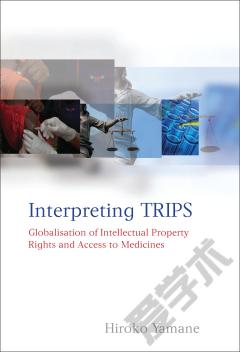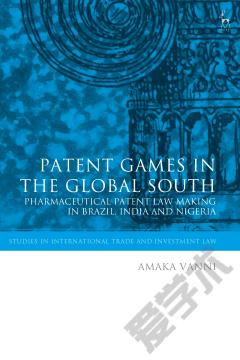TRIPS and Access to Medicines —— Pharmaceutical Patents and the Experience of Brazil
----- TRIPS与药品获取:药品专利和巴西的经验
Although ideally a patent system for pharmaceuticals should serve to incentivize research into the development of new medicines, the COVID-19 pandemic has exposed the equal importance of drug access and affordability. This book, by focusing on the Brazilian rule which makes the grant of pharmaceutical patents dependent on the prior consent of the National Health Surveillance Agency (ANVISA), shows how the Brazilian model affords an example for other countries to follow in dealing with tensions between patent protection and the right to healthcare. Based on an empirical study in which the author examined 147 reports issued by ANVISA as a basis for its decisions, the book deals with such central questions concerning the interface of regulation and innovation in the patent system as the following: compatibility between ANVISA’s prior consent mechanism and the Trade-Related Aspects of Intellectual Property Rights (TRIPS) Agreement; how “evergreening” and “trivial patents” undermine public health and access to medicines; ways of correcting abuses of patent rights and controlling quality of patents; and the discourse on health as a human right. Along with her examination of ANVISA reports, the author analyzes how Article 229-C LPI, which introduced the need of ANVISA’s prior consent to the patent grant of pharmaceuticals in Brazil, has been interpreted in Brazilian case law. Interviews with Brazilian experts are also included. In its commitment to harmonizing patent rights and the right to access of affordable medicines, Brazil’s patent system for pharmaceuticals stands out as a workable response to the basic problem of access to medicines in the developing world. By describing the successes and failures in the Brazilian policy of promoting drug access, this book helps policymakers in developing and emerging countries to better explore TRIPS flexibilities when dealing with similar problems, and provides practitioners in the law of the World Trade Organization, patent law, competition law, and health law with a guide to how a more equitable pharmaceutical patenting system could work in practice.
{{comment.content}}








 京公网安备 11010802027623号
京公网安备 11010802027623号